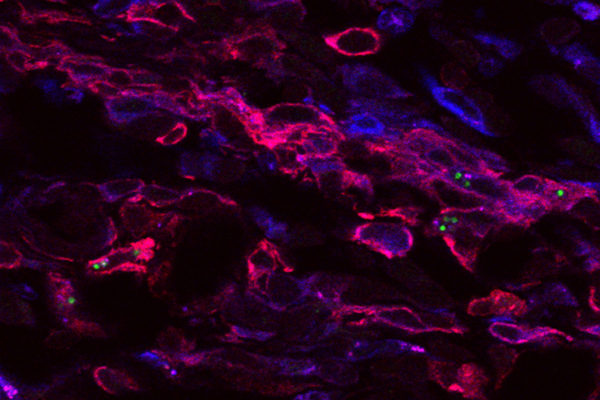Q&A: Adia Harvey Wingfield on sociology, women and the path ahead
Adia Harvey Wingfield, professor of sociology in Arts & Sciences at Washington University in St. Louis, recently was elected president of Sociologists for Women in Society (SWS), a national organization dedicated to improving the social position of women through feminist sociological research and writing. She discusses her plans for SWS, sociology and gender research, and why academics need to engage in public discourse.
Persistent infection keeps immune memory sharp, leading to long-term protection
Researchers at the School of Medicine studying leishmaniasis, a tropical disease that kills tens of thousands of people every year, believe they have found an explanation for the seemingly paradoxical connection between long-term infection and long-term immunity.
If Obamacare gets replaced, will this study still apply?
If you are on Obamacare, you are likely a better tenant or homeowner. Families who get health insurance through the Affordable Care Act (ACA) are significantly more likely to make their rent and mortgage payments than are those who remain uninsured, suggests a new study from the Brown School and Olin Business School.
‘Rosalyn Drexler: Who Does She Think She Is?’
A kiss. A punch. A body braced for impact. The paintings of Rosalyn Drexler exude uncanny stillness, anticipation and, frequently, the dread of imminent violence. This spring the Mildred Lane Kemper Art Museum at Washington University in St. Louis will present “Rosalyn Drexler: Who Does She Think She Is?,” the first full-career retrospective for the multitalented artist.
WashU Expert: Trump has no clear plan for reducing drug prices
Despite announcing in his first press conference that he would deal with a pharmaceutical industry “getting away with murder,” President-elect Donald Trump doesn’t seem to have a clear path for how he will reduce drug prices, said Rachel Sachs, associate professor of law and expert on drug regulation and health law.
What is wrong with pharma?
The general public has a sense that something is amiss with the pharmaceutical industry, but few might consider it in a state of collapse. Washington University’s Michael Kinch tries to convince otherwise in “A Prescription for Change,” his history and review of the industry.
Water world
A team of seismologists analyzing the data from 671 earthquakes that occurred between 30 and 280 miles beneath the Earth’s surface in the Pacific Plate as it descended into the Tonga Trench were surprised to find a zone of intense earthquake activity in the downgoing slab. The pattern of the activity along the slab provided strong evidence that the earthquakes are sparked by the release of water at depth.
Study: How new Airbnb nondiscrimination policy may be worse
New research co-authored by a faculty member at Washington University in St. Louis’s Olin Business School shows that more information about guests, as opposed to less, is important to eliminate potential bias in sharing economy platforms such as Airbnb.
Misinformation may improve event recall, study finds
Research on eyewitness testimony has shown that false details put forth during an interrogation can lead some people to develop vivid memories of events that never happened. While this “false memory” phenomenon is alive and well, new research suggests that a bit of misinformation also has potential to improve our memories of past events — at least under certain circumstances.
Leadership changes in Division of Student Affairs
Justin Carroll, associate vice chancellor for student affairs/dean of students and interim athletics director, has announced his retirement, effective Feb. 1. Carroll is a 36-year veteran of the university, playing a central role in the development of Washington University in St. Louis’ acclaimed residential life and athletics programs.
View More Stories









